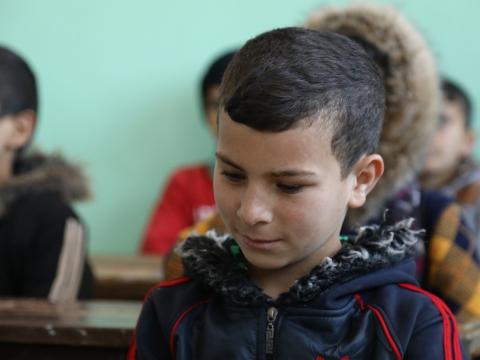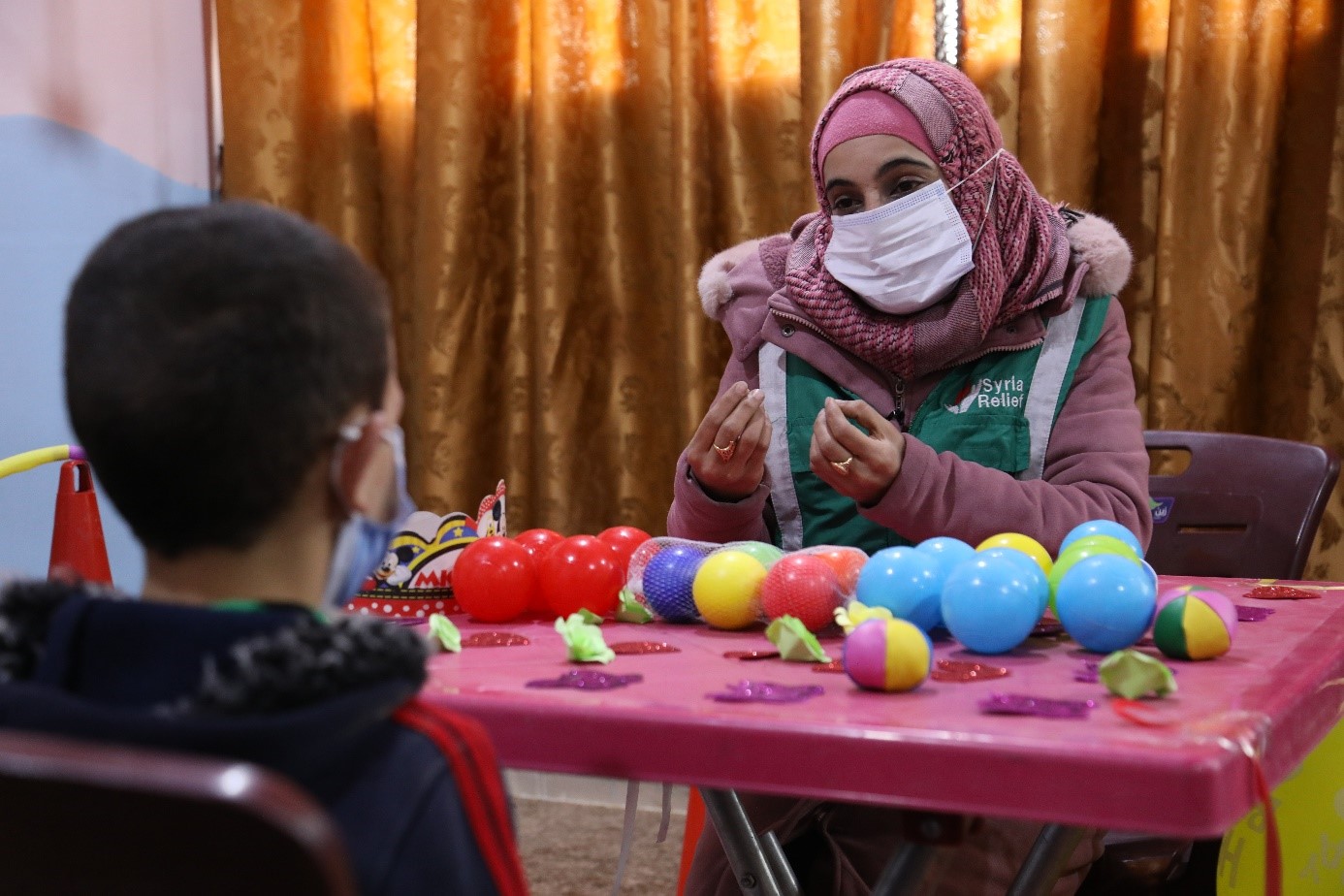Physical and emotional support in crisis

Early in the morning, 12-year-old Amir* looks out the window of the small basement he shares with his parents and four younger siblings. The sky is still dark. He reflects on how different his new home is from his family’s big house in Syria.
Amir’s family fled Syria three years ago when bombs started to fall on their village. “I remember how scared we were that we will not be able to escape the bombs," recalls Ali, Amir's father. "When we stopped to have something to eat, the children thought that we were having a picnic and that the bombing and the sounds of explosions were fireworks. This feeling prompted me and gave me the strength to protect them and get them to the nearest safe area."
At first, they settled in a camp near their village, but the sound of nearby bombs falling had them move again. "I will never forget the image of my children shivering from the extreme cold and the sound of their teeth grinding. We were displaced in the winter, and after a time of displacement and moving from one place to another, it became freezing."
Amir’s parents decided to stay in the camp in which they now live because it has a school their children can attend.
But, each day, Amir tried to convince his parents to let him stay home. He would look out the window nervously, anxious about being made fun of for his small stature and weight.
Early-age malnutrition due to war displacement
Violence due to conflict can devastate children’s lives. Children face chronic and high levels of violence, including neglect, verbal, physical and sexual abuse, as well as child marriage and child labour. World Vision’s Syria crisis repsonse has been ongoning since the start of the Syrian civil war. We’re also parterning with organizations like Syria Relief to support schools in refugee camps.
The most recent Humanitarian Needs Overview of the Syrian Arabic Republic reports that 553,000 children are chronically malnourished and 245,000 acutely malnourished. Moreover, 1/3 of households say their children show signs of psychological distress. Amir suffers from both.
One day, Jamal noticed Amir standing alone, looking frightened. Jamal, on staff with Syria Relief, is part of the child protection programme team that closely monitors schools to assist any children who may be at risk of neglect or exposure to any forms of violence.
“[Amir] suffers from severe emotional distress due to health abnormalities that appeared to come from malnutrition," says Jamal. "We learned from the school's teachers that the child suffers from verbal bullying by his peers and classmates because of his stature."
Jamal called Amir's parents to discuss the boy's health condition and what could be done to make his life a little easier. The first thing was to schedule Amir for a specialized medical check, conducted by an endocrinologist, who also set up a treatment plan. It was confirmed that Amir had suffered from severe malnutrition at an early age, which affected his growth.
Amir’s parents have been provided with food assistance to help fulfil their children’s most essential needs. They celebrate that Amir’s health condition has improved considerably.

Overcoming emotional distress
Next, Amir was included in child psychological support sessions for several months to rebuild his trust in himself and help him overcome the distress and effects caused by the bullying faced at school. His parents also participated in several counselling sessions that taught them how to identify and respond to early signs of emotional distress. Finally, the intervention sought to create a safe space for Amir at school. This was possible through conducting special classes with all of his peers that focused on the importance of friendship and bonding.
Today, Amir looks out his basement window with joy, eager to get to school and make new friends.
*Amir’s real name has been hidden to protect his identity.
VIOLENCE DUE TO CONFLICTS AND DISASTERS - A quarter of the world's children live in countries affected by conflict or disaster. Every day, 37,000 people are forced to flee their homes.
Conflict can devastate children’s lives. As well as being forced to leave behind everything they know, children may be left orphaned, separated from their families, find themselves caring for young siblings and left open to forced labour, sexual exploitation or recruitment into armed groups. We provide food assistance, support with health, nutrition, water and hygiene and set up child-friendly spaces for children to learn and play. We also highlight the importance of education for child refugees and help children become peacebuilders in their own communities.